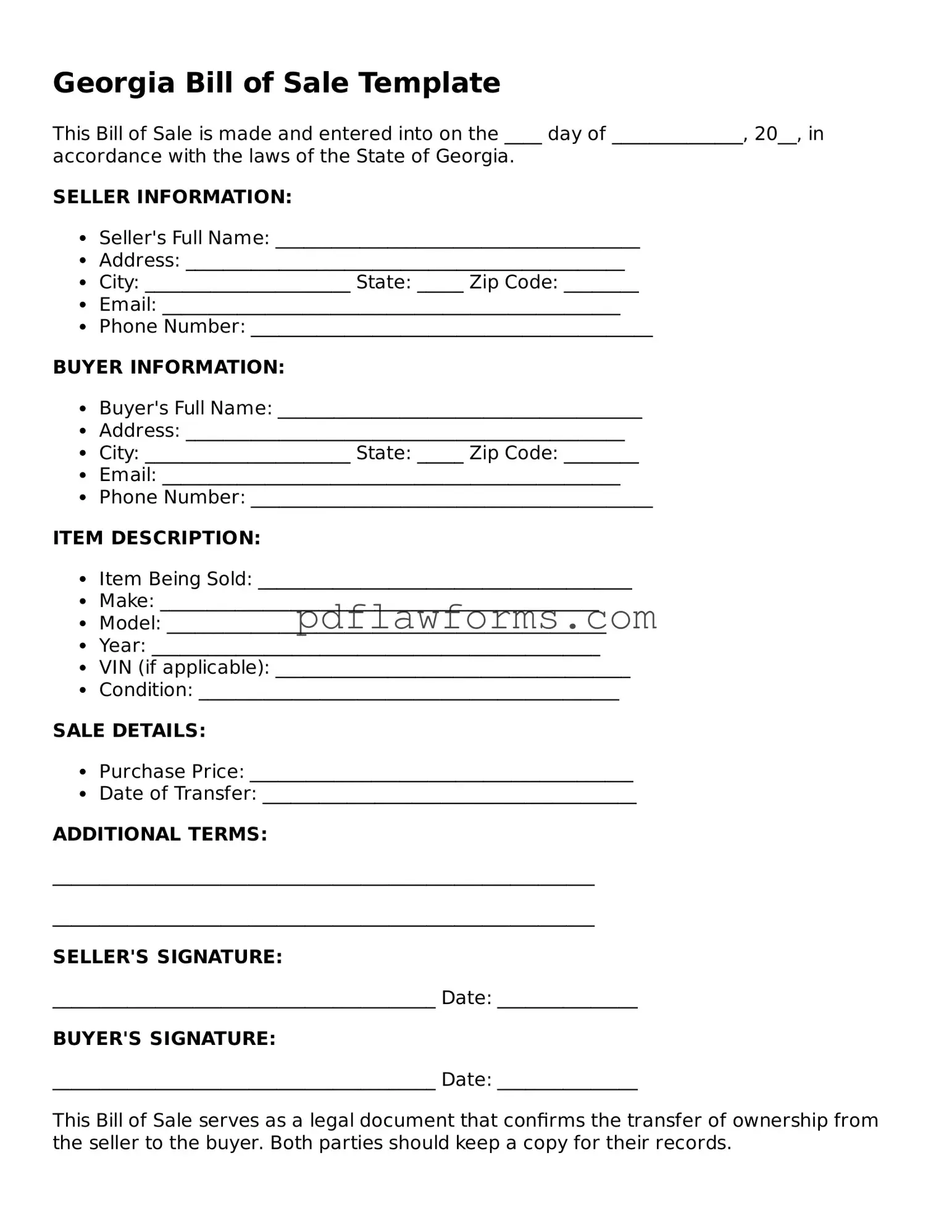Bill of Sale Form for the State of Georgia
The Georgia Bill of Sale form is a legal document that records the transfer of ownership of personal property from one party to another. This form is crucial for ensuring that both the buyer and seller have a clear understanding of the transaction, protecting their rights and interests. If you're ready to make a sale or purchase, fill out the form by clicking the button below.
Make My Document Online

Bill of Sale Form for the State of Georgia
Make My Document Online
You’re halfway through — finish the form
Edit and complete Bill of Sale online, then download your file.
Make My Document Online
or
⇩ Bill of Sale PDF
